Transitioning from military service to college life is a big step. It can feel like going from one world to another. You are not alone in this journey; many veterans have walked this path before you. Getting ready for college means more than just signing up for classes. It means understanding the admission process, knowing what aid is out there, and getting set for a whole new way of life.
This article is meant to be your guide. It will walk you through what you need to know about veteran admission, point you to resources that can ease your transition, and offer tips to help you succeed. Think of this as your starting point for a successful college experience. We will show you how to take what you learned in the military—your discipline, leadership skills, and dedication—and use it to excel in college.
Let’s get started on making your move to college a smooth and rewarding one. Your service has prepared you for this next chapter.
Understanding Veteran Admission: A Step-by-Step Guide
Getting into college as a veteran has steps that are a bit different from those for other students. You’ve got unique experiences and benefits that can play a big role in your application. Let’s walk through what you need to know.
1. Researching Schools with Veteran Support
Not all schools are the same when it comes to supporting veterans. Look for colleges that have good veteran programs. These schools often have:
- Dedicated Veteran Centers: These centers offer a place for veterans to meet, study, and get help with their unique issues.
- Staff Who Know Veteran Benefits: Some staff members specialize in helping veterans understand and use their education benefits.
- Student Veteran Groups: These groups give you a chance to connect with other veterans on campus.
- Flexible Course Options: Some schools offer online or hybrid courses, which can be great if you have work or family duties.
- Credit for Military Experience: Some colleges give you credit for what you learned during your military service, which can help you graduate sooner.
Check out schools’ websites and talk to current student veterans to see if a school is a good fit for you. CollegeRecon, for example, provides school reviews by veterans for veterans.
2. Translating Military Experience into Academic Credits
Your time in the military gave you skills and knowledge that can count toward college credit. Here’s how to get credit for what you’ve learned:
- Get Your Military Transcripts: Order your official Joint Services Transcript (JST) for Army, Navy, Marine Corps, and Coast Guard personnel, or your Community College of the Air Force (CCAF) transcript if you’re in the Air Force.
- Submit Transcripts to College: Send these transcripts to the colleges you’re applying to.
- Have Transcripts Evaluated: The college will look at your transcripts to see what credits they can give you. They might look at your military training, courses, and job roles.
- Consider Portfolio Assessment: Some schools let you create a portfolio to show what you’ve learned in the military. This can include papers, projects, and other work that shows your skills.
The American Council on Education (ACE) is a good resource for understanding how military training translates into college credit. The ACE guide helps colleges assess military experience.
3. Navigating the Application Process as a Veteran
Applying to college as a veteran means knowing how to show your military experience and skills in your application. Here are some things to keep in mind:
- Highlight Leadership and Teamwork: Talk about times when you led teams, solved problems, or showed discipline. These are skills that colleges value.
- Explain Your Military Roles: Clearly explain what you did in the military. Use clear language, not military jargon. Show how your roles have prepared you for college.
- Write a Strong Essay: Your essay is a chance to tell your story. Talk about your goals, what you learned in the military, and how you plan to use your education.
- Get Letters of Recommendation: Ask officers or supervisors who know your work ethic and skills to write you letters of recommendation.
Make sure to meet all application deadlines and submit all required documents. Contact the college’s veteran affairs office if you have any questions.
4. Understanding and Utilizing Veteran-Specific Financial Aid
As a veteran, you have access to financial aid options that aren’t available to other students. Here’s what you need to know:
- GI Bill Benefits: The Post-9/11 GI Bill can cover tuition, housing, and books. Check your eligibility and how much you can get.
- Yellow Ribbon Program: This program helps cover tuition costs that the GI Bill doesn’t. Not all schools participate, so check if your school does.
- Federal Student Aid (FAFSA): Fill out the Free Application for Federal Student Aid (FAFSA) to see if you qualify for federal grants and loans.
- State-Level Aid: Many states offer aid programs for veterans. Check what your state offers.
- Scholarships for Veterans: Look for scholarships specifically for veterans. Websites like Scholarships.com and Sallie Mae have lists of scholarships for veterans.
Make sure you understand the rules and deadlines for each financial aid program. Contact the college’s financial aid office or veteran affairs office for help.
5. Connecting with Campus Resources for Veterans
Colleges offer resources to help veterans succeed. Here are some resources to use:
- Veteran Centers: These centers offer support, advising, and a place to meet other veterans.
- Counseling Services: Colleges offer counseling services to help with stress, anxiety, or PTSD.
- Tutoring Services: If you need help with your courses, tutoring services can help you understand the material.
- Career Services: Career services can help you with resume writing, job searching, and career planning.
- Disability Services: If you have a disability, disability services can offer accommodations and support.
Get to know the resources available on campus and don’t hesitate to use them. These resources are there to help you succeed.
Thriving in College: Tips for Veteran Success
College is a new world, but your time in the military has given you skills that can help you thrive. Here are some tips for making the most of your college experience:
1. Building a Support Network
Having a strong support network is key to success in college. Here’s how to build one:
- Join Student Veteran Groups: These groups offer a sense of community and a chance to connect with other veterans who understand your experience.
- Connect with Faculty and Staff: Get to know your professors and advisors. They can offer guidance and support.
- Participate in Campus Activities: Join clubs, sports, or other activities that interest you. This is a great way to meet new people and get involved in campus life.
- Stay Connected with Family and Friends: Keep in touch with your family and friends. They can offer emotional support and a sense of connection to your life before college.
- Use Counseling Services: Don’t hesitate to use counseling services if you’re feeling stressed, anxious, or overwhelmed.
Remember, you’re not alone in this journey. Building a strong support network can help you navigate the challenges of college life.
2. Managing Academic Workload and Stress
College can be demanding, but there are ways to manage your workload and reduce stress:
- Develop Good Study Habits: Set aside time each day to study, and find a quiet place where you can focus.
- Break Down Large Tasks: Break large assignments into smaller, more manageable tasks. This can make them less overwhelming.
- Use Time Management Tools: Use a planner, calendar, or app to keep track of your assignments and deadlines.
- Take Breaks: Make sure to take breaks to relax and recharge. Get up and move around, listen to music, or do something you enjoy.
- Get Enough Sleep: Aim for 7-8 hours of sleep each night. Lack of sleep can make it harder to focus and manage stress.
- Eat a Healthy Diet: Eating healthy foods can improve your mood and energy levels.
- Exercise Regularly: Exercise can help reduce stress and improve your overall well-being.
- Seek Help When Needed: Don’t hesitate to ask for help from your professors, tutors, or counselors if you’re struggling.
Remember, taking care of your physical and mental health is key to success in college.
3. Balancing College with Family and Other Responsibilities
Many veterans have family and other responsibilities that can make college even more challenging. Here’s how to balance it all:
- Set Priorities: Decide what’s most important to you and focus on those things.
- Create a Schedule: Create a schedule that includes time for school, family, work, and other responsibilities.
- Communicate with Your Family: Talk to your family about your goals and what you need from them.
- Find Support: Look for support groups or other resources for student parents or veterans with families.
- Use Campus Resources: Take advantage of campus resources like childcare, tutoring, and counseling.
- Be Flexible: Be prepared to adjust your schedule as needed. Life happens, and sometimes you need to change your plans.
Balancing college with family and other responsibilities can be challenging, but it’s possible. With careful planning and support, you can succeed.
4. Overcoming Common Challenges Faced by Veterans in College
Veterans may face unique issues in college, such as:
- Adjusting to Civilian Life: Going from the military to college can be a big change. It can take time to adjust to a new culture and way of life.
- Dealing with PTSD or Other Mental Health Issues: Some veterans experience PTSD or other mental health issues that can affect their ability to succeed in college.
- Feeling Isolated: Veterans may feel like they don’t fit in with other students who haven’t had similar experiences.
- Financial Stress: Even with the GI Bill, some veterans struggle to make ends meet.
- Academic Challenges: Some veterans may have been out of school for a while and need to brush up on their academic skills.
If you’re facing any of these challenges, remember that you’re not alone. Reach out to campus resources or veteran support groups for help.
5. Leveraging Military Skills for Academic Success
Your time in the military has given you skills that can help you succeed in college:
- Discipline: The military teaches you discipline, which can help you stay focused and on track in your studies.
- Leadership: You’ve learned how to lead and motivate others, which can be valuable in group projects and other academic settings.
- Teamwork: The military emphasizes teamwork, which can help you work effectively with other students.
- Problem-Solving: You’ve learned how to solve problems under pressure, which can be valuable in challenging courses.
- Resilience: You’ve overcome challenges in the military, which can help you bounce back from setbacks in college.
Think about how you can use these skills to excel in your studies.
Maximizing Your Benefits: A Guide to Financial Resources
Navigating the financial side of college can be tough, but as a veteran, you have access to great resources that can help. Let’s look at how to make the most of your benefits and find other ways to pay for school.
1. Understanding the Post-9/11 GI Bill
The Post-9/11 GI Bill is a key benefit for many veterans. Here’s what it covers:
- Tuition and Fees: The GI Bill can pay for tuition and fees at public and private colleges and universities. The amount it covers depends on your length of service.
- Housing Allowance: You can get a monthly housing allowance (MHA) based on the cost of living in the area where you’re attending school.
- Books and Supplies: You can get up to \$1,000 per year for books and supplies.
To use the GI Bill, you’ll need to:
- Apply for Benefits: Apply for benefits through the VA website.
- Get a Certificate of Eligibility: Once approved, you’ll get a Certificate of Eligibility.
- Submit Certificate to School: Give the certificate to your school’s veteran affairs office.
Make sure to understand the rules and requirements of the GI Bill. Contact the VA or your school’s veteran affairs office if you have questions.
2. Exploring the Yellow Ribbon Program
The Yellow Ribbon Program can help cover tuition costs that the GI Bill doesn’t. Here’s how it works:
- Participating Schools: Schools that participate in the Yellow Ribbon Program agree to cover a portion of your tuition costs.
- VA Match: The VA matches the school’s contribution, which can cover a significant amount of your remaining tuition.
- Eligibility: To be eligible, you must qualify for the maximum benefit rate under the Post-9/11 GI Bill.
Check if your school participates in the Yellow Ribbon Program and if you’re eligible. This program can make college much more affordable.
3. Applying for Federal and State Grants
Grants are a great way to pay for college because you don’t have to pay them back. Here are some grant options:
- Federal Pell Grant: Fill out the FAFSA to see if you qualify for a Pell Grant. The amount you can get depends on your financial need.
- Federal Supplemental Educational Opportunity Grant (FSEOG): This grant is for students with exceptional financial need.
- State Grants: Many states offer grants for students attending college in their state. Check what your state offers.
Make sure to meet all application deadlines and submit all required documents. The FAFSA is the first step in applying for federal grants.
4. Searching for Veteran-Specific Scholarships
Scholarships are another great way to pay for college because you don’t have to pay them back. Here are some places to look for scholarships for veterans:
- Scholarships.com: This website has a list of scholarships for veterans and military families.
- Sallie Mae: Sallie Mae offers scholarships for veterans and military personnel.
- Veterans United Foundation: This foundation offers scholarships for veterans and their families.
- AMVETS: AMVETS offers scholarships for veterans pursuing higher education.
Take the time to search for scholarships and apply for as many as you can. Every little bit helps.
5. Utilizing Tuition Assistance Programs
If you’re still serving in the military, you may be eligible for tuition assistance programs. Here’s what you need to know:
- Eligibility: Each branch of the military has its own tuition assistance program. Check the requirements for your branch.
- Covered Costs: Tuition assistance can cover tuition and fees for courses related to your degree.
- Service Commitment: You may have to commit to additional service after completing your education.
Talk to your education officer to see if you’re eligible for tuition assistance. This can be a great way to pay for college while still serving.
Career Planning: Transitioning Military Skills to Civilian Careers
College is a step toward your civilian career. Your military skills and experience are valuable assets. Let’s look at how to translate those skills into a successful civilian career.
1. Identifying Transferable Skills
Your military service gave you skills that are valuable in the civilian world. Here are some common transferable skills:
- Leadership: Leading teams, motivating others, and making decisions.
- Teamwork: Working effectively with others to achieve a common goal.
- Problem-Solving: Solving problems under pressure and finding creative solutions.
- Communication: Communicating clearly and effectively with others.
- Discipline: Staying focused, organized, and committed to your goals.
- Adaptability: Adapting to new situations and challenges.
Think about how you can show these skills to potential employers.
2. Matching Military Experience with Civilian Job Opportunities
Connect your military experience with civilian job opportunities. Here’s how:
- Research Industries: Research industries that interest you and see what skills they need.
- Read Job Descriptions: Carefully read job descriptions and look for skills that match your military experience.
- Translate Military Jargon: Translate your military job titles and responsibilities into language that civilians can understand.
- Highlight Accomplishments: Highlight your achievements and show how you made a difference in your military roles.
Use websites like LinkedIn and Indeed to search for jobs and connect with employers.
3. Building a Civilian Resume
Your resume is your first chance to impress employers. Here’s how to create a strong civilian resume:
- Use a Civilian Format: Use a standard resume format that’s easy to read and understand.
- Highlight Transferable Skills: Focus on the skills you gained in the military that are relevant to the job you’re applying for.
- Quantify Achievements: Use numbers and data to show your achievements. For example, “Led a team of 10 soldiers to complete a project 20% ahead of schedule.”
- Tailor Your Resume: Customize your resume for each job you apply for.
Get help from your college’s career services office to create a strong resume.
4. Networking and Informational Interviews
Networking is a key part of job searching. Here’s how to network effectively:
- Attend Career Fairs: Go to career fairs and talk to employers.
- Join Professional Organizations: Join organizations related to your field and attend their meetings.
- Connect on LinkedIn: Connect with people in your field on LinkedIn.
- Ask for Informational Interviews: Ask people in your field for informational interviews. This is a chance to learn more about their job and get advice.
Networking can help you make connections and find job opportunities.
5. Utilizing Career Services and Veteran Resources
Colleges and veteran organizations offer resources to help you with your career planning. Here are some resources to use:
- College Career Services: Your college’s career services office can help you with resume writing, job searching, and interview skills.
- Veteran Affairs Offices: These offices offer career counseling and job placement assistance.
- Transition Assistance Program (TAP): This program helps you prepare for your transition to civilian life.
- Veterans Employment Centers: These centers offer job search assistance and training for veterans.
Take advantage of these resources to help you with your career planning. They can provide valuable support and guidance.
Mental and Emotional Well-being: Taking Care of Yourself
College can be stressful, and veterans may face unique challenges. Looking after your mental and emotional health is very important for your success and well-being.
1. Recognizing Signs of Stress and Mental Health Issues
Spotting stress and mental health problems is the first step in getting help. Some signs include:
- Feeling Anxious or Overwhelmed: Constant worry or feeling like things are too much to handle.
- Changes in Sleep or Appetite: Trouble sleeping or big changes in how much you eat.
- Feeling Sad or Hopeless: Ongoing sadness or loss of interest in things you used to enjoy.
- Difficulty Concentrating: Trouble focusing or making decisions.
- Irritability or Anger: Feeling easily annoyed or angry.
- Withdrawing from Others: Pulling away from friends and family.
If you notice these signs, it’s important to seek support.
2. Accessing Mental Health Services on Campus
Colleges offer mental health services to help students. Here’s how to access them:
- Counseling Centers: Most colleges have counseling centers where you can talk to a therapist or counselor.
- Psychological Services: Some colleges have psychological services where you can get mental health assessments and treatment.
- Support Groups: Colleges may offer support groups for students with similar issues.
- Referrals: If the college doesn’t offer the services you need, they can refer you to providers in the community.
Don’t hesitate to use these services if you’re struggling.
3. Utilizing VA Resources for Mental Health
The VA offers resources for veterans’ mental health:
- VA Mental Health Services: The VA has mental health clinics and programs for veterans.
- Vet Centers: Vet Centers offer counseling and support services to veterans and their families.
- Veterans Crisis Line: If you’re in crisis, you can call the Veterans Crisis Line at 1-800-273-8255 and press 1.
- MakeTheConnection.net: This website has stories and resources for veterans’ mental health.
The VA is committed to supporting veterans’ mental health.
4. Practicing Self-Care Strategies
Self-care is important for managing stress and staying well. Here are some strategies:
- Exercise: Regular exercise can improve your mood and reduce stress.
- Healthy Diet: Eating healthy foods can give you energy and improve your well-being.
- Sleep: Aim for 7-8 hours of sleep each night.
- Relaxation Techniques: Practice relaxation techniques like deep breathing, meditation, or yoga.
- Hobbies: Do things you enjoy, like reading, listening to music, or spending time in nature.
- Social Connections: Spend time with friends and family.
Make self-care a part of your daily routine.
5. Building Resilience and Coping Skills
Resilience is your ability to bounce back from hard times. Here’s how to build resilience:
- Set Goals: Setting goals can give you a sense of purpose and direction.
- Develop Problem-Solving Skills: Learning how to solve problems can make you feel more confident and capable.
- Build Strong Relationships: Strong relationships can provide support and a sense of belonging.
- Practice Gratitude: Focusing on the things you’re grateful for can improve your mood and outlook.
- Accept Change: Learning to accept change can help you adapt to new situations.
Building resilience can help you get through challenges and thrive in college.
Community and Connection: Finding Your Place on Campus
College is about more than just academics. Finding your place on campus is important for your overall experience.
1. Joining Veteran Student Organizations
Veteran student organizations give you a chance to connect with other veterans. These groups can:
- Provide a Sense of Community: Connect with others who understand your experience.
- Offer Support: Get help with issues specific to veterans.
- Organize Events: Participate in social and community service events.
- Advocate for Veterans: Advocate for veterans’ needs on campus.
Check with your college’s veteran affairs office to see what organizations are available.
2. Participating in Campus Clubs and Activities
Getting involved in campus clubs and activities is a great way to meet new people and explore your interests. Here are some options:
- Academic Clubs: Join clubs related to your major or interests.
- Sports: Play intramural sports or join a club team.
- Volunteer Organizations: Volunteer with a group on campus.
- Cultural Organizations: Join groups that celebrate your culture or heritage.
Find clubs and activities that interest you and get involved.
3. Engaging with the Broader Student Body
Connecting with students who aren’t veterans can help you grow your network. Here’s how:
- Attend Campus Events: Go to concerts, lectures, and other events.
- Join Study Groups: Study with other students in your classes.
- Participate in Class Discussions: Share your thoughts and ideas in class.
- Be Open-Minded: Be open to meeting people from different backgrounds and with different perspectives.
Building connections with the broader student body can enrich your college experience.
4. Creating Opportunities for Dialogue and Understanding
Creating conversations between veterans and other students can foster understanding. Here are some ideas:
- Host Events: Organize events that bring veterans and other students together.
- Share Your Story: Be open to sharing your military experience with others.
- Listen to Others: Be willing to listen to others’ perspectives and experiences.
- Promote Understanding: Promote understanding and respect between veterans and other students.
Building bridges between different groups can make your campus more welcoming.
5. Finding Mentors and Role Models
Mentors and role models can provide guidance and support. Here’s how to find them:
- Connect with Faculty: Get to know your professors and ask for advice.
- Talk to Alumni: Reach out to alumni who are veterans or who have careers you admire.
- Join Mentoring Programs: Some colleges have mentoring programs for veterans.
- Seek Advice: Ask for advice and guidance from people you trust.
Mentors and role models can help you navigate the challenges of college and career planning.
From Service to Success: Embracing Your Next Chapter
As you navigate the world of veteran admission, remember that your military service has uniquely equipped you for success. Embrace this next chapter with the same dedication and resilience you showed in the military. College is a new battlefield, but you have the skills, resources, and support to conquer it.


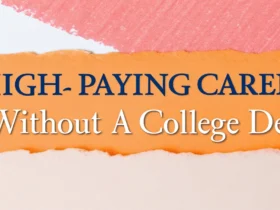


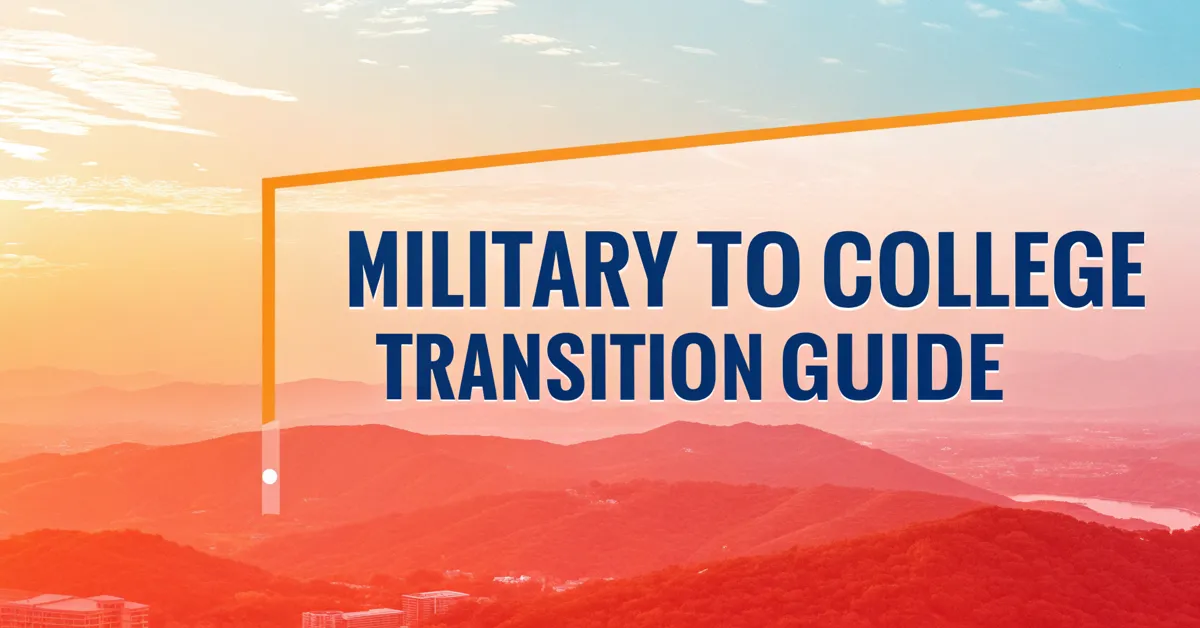
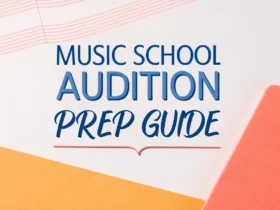






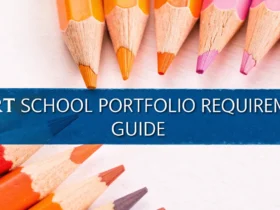
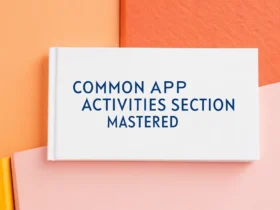
Leave a Reply
View Comments